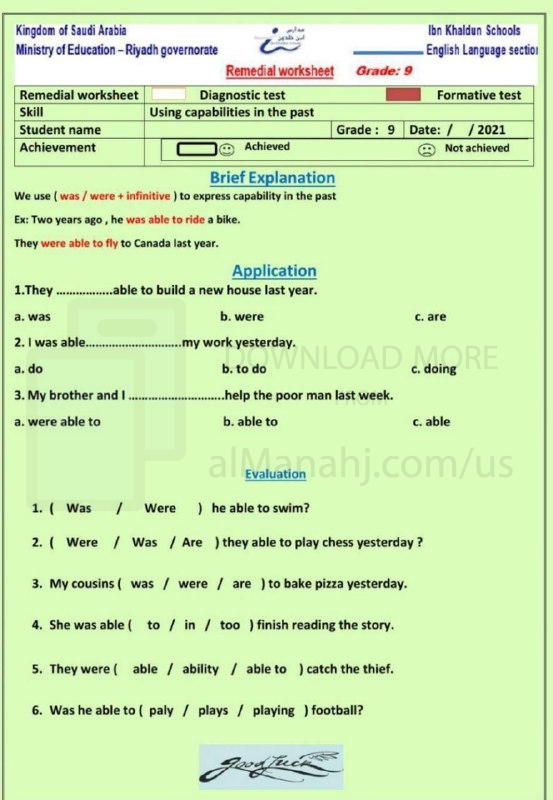| File info: The construction "was/were + able to" is used to express past ability or the capability to do something in English. It indicates that someone had the skill, opportunity, or resources to accomplish a particular action or task in the past.
The structure is as follows:
- For singular subjects, we use "was able to." For example, "He was able to swim across the river."
- For plural subjects and the pronoun "you," we use "were able to." For example, "They were able to solve the problem" or "You were able to finish the project on time."
The phrase "was/were able to" emphasizes the successful completion of an action or the achievement of a specific goal. It implies that the person had the necessary means or circumstances to accomplish the task at hand.
It is worth noting that "was/were able to" is often used interchangeably with "could" in the past tense to express ability. However, "was/were able to" tends to emphasize a specific achievement or accomplishment, while "could" focuses more on general or habitual ability.
Here are a few more examples:
- "She was able to speak four languages fluently."
- "We were able to find a solution to the problem."
- "He wasn't able to attend the meeting due to a scheduling conflict."
- "Were you able to finish the assignment in time?"
Overall, the construction "was/were + able to" in the past tense is used to describe the ability or accomplishment of doing something in the past, highlighting that the person had the capacity or opportunity to achieve a specific result. |
